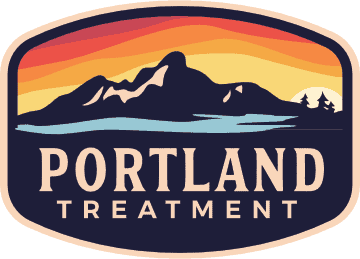OCD Treatment in Biddeford, Maine
Obsessive-Compulsive Disorder (OCD) isn’t about being “neat” or “organized.” It’s a serious anxiety disorder that can take over a person’s thoughts, routines, and daily functioning. Many people with OCD feel trapped in cycles of fear, intrusive thoughts, and compulsive behaviors meant to relieve overwhelming anxiety.
At Portland Treatment in Biddeford, Maine, we provide compassionate, evidence-based treatment for individuals struggling with OCD, whether it’s their primary concern or part of a co-occurring disorder alongside addiction, depression, trauma, or other mental health challenges.
What OCD Really Is
OCD is characterized by two main components:
Obsessions
Intrusive, distressing, and unwanted thoughts or images, such as:
- Fear of contamination or illness
- Fear of harming someone accidentally
- “Intrusive thoughts” about violence, sexuality, or morality (which often clash with a person’s values)
- Anxiety about making mistakes
- Intense need for certainty or symmetry
Compulsions
Behaviors or mental rituals performed to reduce distress from obsessions, including:
- Excessive cleaning or handwashing
- Rechecking doors, stoves, locks, or messages
- Counting or repeating actions
- Seeking reassurance
- Mental checking or praying
- Avoiding certain people, places, or triggers
These cycles can consume hours a day and lead to shame, exhaustion, and isolation.
OCD and Addiction: A Common Co-Occurring Pattern
Many people with OCD turn to drugs or alcohol in an attempt to:
- Quiet intrusive thoughts
- Reduce constant anxiety or compulsive urges
- Cope with exhaustion from rituals
- Escape the distress of “not feeling in control”
Substance use may feel like relief in the moment—but over time, addiction makes OCD symptoms more intense. This creates a harmful feedback loop:
- OCD increases anxiety
- Substance use temporarily numbs it
- Withdrawal worsens anxiety
- OCD compulsions strengthen
- Addiction deepens
At Portland Treatment, we treat both disorders together, not separately. This approach produces significantly better long-term outcomes.
How Portland Treatment Helps Clients With OCD
We use gold-standard, research-backed therapies proven to reduce OCD symptoms and restore functioning.
Exposure and Response Prevention (ERP)
ERP is the most effective treatment for OCD. It helps clients:
- Face feared thoughts or triggers safely
- Learn to tolerate anxiety without performing compulsions
- Retrain their nervous system to stop sending “false alarms”
Our clinicians guide ERP gently and at an appropriate pace for each individual.
Cognitive Behavioral Therapy (CBT)
CBT helps identify distorted thought patterns linked to OCD, such as:
- “I have to be 100% sure.”
- “If I think it, it means I might do it.”
- “Something bad will happen if I don’t do this ritual.”
By learning to challenge and replace these beliefs, clients regain control over their thoughts.
Medication Management
Selective serotonin reuptake inhibitors (SSRIs) and other psychiatric medications can significantly reduce intrusive thoughts and compulsive urges. Our psychiatric providers collaborate closely with therapists to adjust medications safely and effectively.
Mindfulness & Distress Tolerance Skills
These skills teach clients how to:
- Sit with discomfort
- Reduce compulsive impulses
- Interrupt repetitive mental loops
- Calm the body during high anxiety moments
Mindfulness reinforces ERP and improves long-term resilience.
Treatment for Co-Occurring Disorders
Since OCD often coexists with:
- Substance use disorders
- Anxiety disorders
- Depression
- PTSD or trauma history
- Eating disorders
- Personality disorders
Portland Treatment provides integrated care that addresses all conditions simultaneously rather than in isolation.
What OCD Treatment Looks Like at Portland Treatment
Clients work one-on-one with a licensed clinician and may also participate in specialized groups that focus on:
- Intrusive thoughts & anxiety regulation
- Compulsion interruption strategies
- Exposure practice
- Shame and self-compassion
- Cognitive restructuring
- Relapse and urge management (if addiction is present)
Treatment is always collaborative and paced according to client readiness.
When to Seek OCD Treatment
You may benefit from professional help if:
- You spend more than one hour a day on obsessions or compulsions
- You feel distressed, ashamed, or overwhelmed by your thoughts
- You avoid situations that trigger anxiety
- You use alcohol or drugs to manage intrusive thoughts
- OCD is interfering with work, relationships, or daily life
- You want relief but feel unable to stop the cycles on your own
No one should have to face OCD alone. Treatment works—and most people experience meaningful improvement with the right care.
Sources
American Psychiatric Association. (2022). What is obsessive-compulsive disorder? APA.org. Retrieved from https://www.psychiatry.org/patients-families/ocd/what-is-obsessive-compulsive-disorder
International OCD Foundation. (2024). About OCD. IOCDF.org. Retrieved from https://iocdf.org/about-ocd/
Mayo Clinic. (2024). Obsessive-compulsive disorder (OCD): Symptoms and causes. MayoClinic.org. Retrieved from https://www.mayoclinic.org/diseases-conditions/obsessive-compulsive-disorder/symptoms-causes/syc-20354432
National Institute of Mental Health. (2024). Obsessive-compulsive disorder. NIMH.nih.gov. Retrieved from https://www.nimh.nih.gov/health/topics/obsessive-compulsive-disorder-ocd
Abramowitz, J. S., McKay, D., & Taylor, S. (2008). Cognitive-behavioral therapy for obsessive-compulsive disorder. Guilford Press.
Foa, E. B., & Kozak, M. J. (1986). Emotional processing of fear: Exposure to corrective information. Psychological Bulletin, 99(1), 20–35. https://doi.org/10.1037/0033-2909.99.1.20

